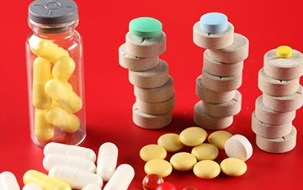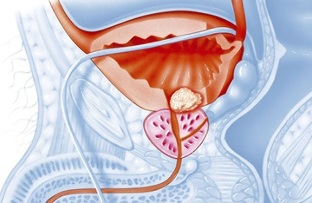
The identification of prostatitis requires a balanced approach to the selection of essential and auxiliary drugs.
For successful therapy, you need to visit a urologist, buy inexpensive and effective drugs for prostatitis as prescribed by the doctor.
What are the most effective pills for prostatitis
Many men hope to find a remedy for a quick and complete cure of inflammation in the affected gland.
The disease has many negative manifestations of different nature: pain, urinary retention, spasms of smooth muscles, which requires the use of several different groups of drugs.
For chronic and acute prostatitis, a complex of drugs is prescribed:
- Antibacterial compounds.
- Medications (often of plant origin) to activate metabolic processes in the prostate gland.
- Antispasmodics and analgesics.
- Anti-inflammatory names.
- Compounds that improve blood circulation.
Several drugs with synthetic and natural bases are used in the treatment of prostatitis.
The pharmacological category of drugs is most effective in the acute inflammatory process. Herbal remedies are most often prescribed for the chronic form of pathology, to prevent relapses.
Preparations for inflammation of the prostate
You can not take pills or use rectal suppositories that help a colleague or family member: when prescribing drugs, the doctor takes into account the form of prostatitis, the degree of damage to the prostate, the nature of the restrictions, the type ofpathogen. Improper treatment does not work, interferes with the early elimination of the inflammatory process, and is detrimental to health.
For chronic prostatitis

The main task is to prevent relapses. The pain syndrome is mild, the discomfort is moderate, the urination process is partially restored.
Optimal drug complex for chronic prostatitis:
- compounds to activate blood circulation;
- muscle relaxants;
- symptomatic remedies;
- alpha blockers;
- soothing herbal decoctions and tinctures;
- drugs for the normalization of metabolic processes in the prostate;
- vitamins and restorative compositions.
For acute prostatitis
The main task is to stop the disease process to prevent further progression of the disease. The urologist prescribes drugs to prevent the transition from an acute form of prostatitis to a chronic one.
Names and groups of effective drugs:
- Antibiotics. Drugs suppress the activity of infectious agents.
- Anti-inflammatory drugs. The names of the group of NSAIDs stop the pathological process, remove the swelling of the tissues of the prostate and reduce pain. In case of severe inflammation, powerful hormonal agents are prescribed in a short course.
- Analgesics and antispasmodics.
Anti-inflammatory
For prostatitis, formulations of the following groups are used:
- Non-steroidal drugs (NSAIDs).Active suppression of the inflammatory process, reduction of pain, swelling. The long-lasting effect of the new generation formulations allows you to take 1 tablet per day. It is important to take into account the state of the digestive tract: non-selective NSAIDs actively irritate the mucous membranes.
- Hormonal agents.Medications are prescribed for serious pathological processes, severe pain, low efficacy of NSAIDs. The course of treatment is 7 to 28 days.
- Specific formulations to combat inflammation of the prostate.Preparations in the form of rectal suppositories and tablets.
Painkillers
Analgesics are second-line drugs (adjuvants) in the treatment of prostatitis. It is most often prescribed in the acute course of the inflammatory process against the background of excruciating pain. NSAIDs and pain relievers are used to reduce pain.
A powerful anesthetic is prescribed for severe discomfort, the course lasts no more than 5 days.
Some medications (injections and rectal suppositories) not only relieve pain, but also eliminate blood congestion and reduce inflammation of the prostate gland.
Antibacterial
When an infectious agent is identified after analyzing a biomaterial, the urologist assigns names, the components of which suppress the activity of the pathogen.
For chronic prostatitis, a man is given pills, in the context of an acute course - injections and formulations for oral administration.
It is important to destroy the lesion to prevent the spread of infection to neighboring areas.
To improve blood circulation
With a prolonged course of prostatitis, without proper therapy, pain and congestion develop.
In a context of poor blood circulation and tissue edema, antibiotics are less absorbed and the effectiveness of treatment decreases.
In parallel with antibacterial compounds, the urologist prescribes drugs to improve the blood supply to the tissues of the prostate.
To stabilize metabolic processes in the prostate
It is important to undergo regular treatment for a chronic form of the disease to prevent an exacerbation.
It is impossible to stop therapy early if the symptoms are less pronounced or have disappeared - violation of the instructions reduces the effect of taking formulations to restore the functionality of the prostate.
Antibiotics
The urologist selects the optimal form of the drug based on the results of the bacterial culture. During the study, the laboratory assistant indicates the active substances most harmful to the identified microorganism on the decoding sheet.
Antibiotics of various groups have a good effect in the treatment of prostatitis:
- Macrolides.High treatment efficacy in detecting mycoplasmas and chlamydia.
- Fluoroquinolones.Broad spectrum medications.
- Tetracyclines.Active effect on chlamydia and mycoplasma, but more side effects than macrolides.
- New generation penicillinscombined with clavulanic acid. Modern drugs show high effectiveness of therapy against the background of good tolerance.
Popular and inexpensive products
Unfortunately, many drugs for treating inflammation of the prostate are in the high price category. The costs of treating the chronic form of the disease increase in the context of long-term use of the formulations.
It is quite difficult to find an effective tool at an affordable cost. It is important to consider the number of suppositories, blisters, capsules or tablets in the package.
Reviews
There are many different opinions on inexpensive drugs for the treatment of prostatitis. Many men note the high effectiveness of therapy with the combined use of antibiotics, antispasmodics and drugs to improve metabolism in the prostate gland.
There are also many negative reviews about the nature of the treatment, mainly for the chronic form of the disease. Most negative opinions are associated with the hope of an as soon as possible elimination of signs of pathology, but with recurrent prostatitis, long-term medication (up to 6 months) is needed, strict adherence to the schedule of use.
Many men violate instructions, take a shorter course than expected, drink alcohol, smoke, continue to lead a sedentary lifestyle, do not attend physical therapy or self-medicate.
With this therapeutic approach, not even the latest prostatitis medications and the advice of an experienced urologist are helpful.
It is important to consider this point before starting treatment to avoid disappointment and neglected cases of pathology.
Treatment of recurrent inflammation of the prostate requires not only patience and the precise implementation of the doctor's recommendations, but also significant financial costs. Doctors advise treating the disease at an early stage so that the acute form does not turn into a chronic one.


























